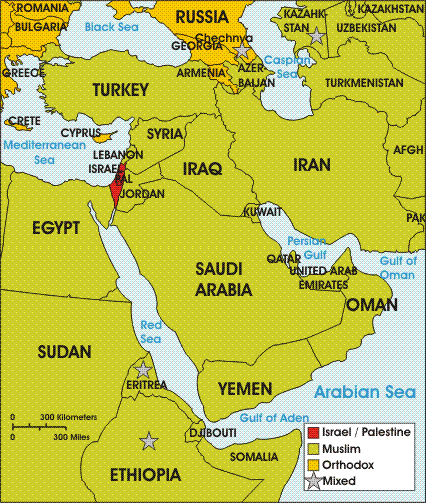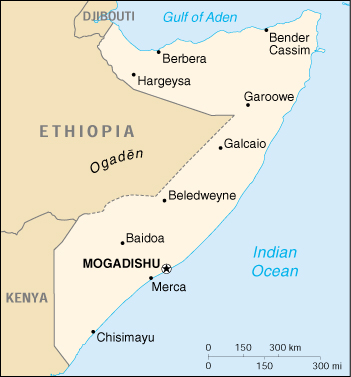
Dynamics

|
Generational Dynamics |
| Forecasting America's Destiny ... and the World's | |
| HOME WEB LOG COUNTRY WIKI COMMENT FORUM DOWNLOADS ABOUT | |
All four suspects are now in custody after an international manhunt captured three suspects in London and one in Rome.
 |
Incidentally, we're not talking about the four perpetrators of the original 7/7 subway bombings. Those were massive blasts caused by four suicide bombers who were killed in the blasts, along with dozens of other innocent people, and so, of course, they will never be in custody.
These suspects are the four perpetrators of the 7/21 subway bombings. Those were not attempted suicide bombings. The four perpetrators left the bombs behind in bags to explode. All four bombs failed to explode, although the bombs' detonators did explode, hurting one person non-fatally.
Thanks to brilliant police work, all suspects were arrested without firing a shot. Yasin Hassan Omar was captured on Wednesday in the city of Birmingham Two of the suspects were arrested Friday in west London, following raids by heavily armed police wearing gas masks and lobbing stun grenades.
Tracing cell phone calls across Europe, police in Rome on Friday arrested Osman Hussain, a naturalized British citizen from Somalia. Osman was the fourth attacker in the botched bombings.
What made such quick work possible was the fact that there are cameras on the subway and on most street corners in London. Investigators were able to go back through the tapes from 7/27 and find pictures of the four suspects and make them public. Civil libertarians object to the use of these cameras, and they're little used in America; but this will increasingly become an issue as the rate of terrorism increases.
 |
It turns out that all four suspects are from east Africa, three of them from Somalia.
Somalia was in the international news in 1993, when Somali gunmen killed US soldiers and shot down a Black Hawk helicopter in Mogadishu. The incident caused a humiliating retreat of American forces out of Somalia, and was given as one of the reasons that Osama bin Laden believed that he could defeat America with terrorist attacks like 9/11. The Somalia incident was retold in the 2001 movie Black Hawk Down.
Since that time, Somalia has become known as a "Crucible for al-Qaeda," because it has a long, unpoliced coastline that's permitted smugglers and terrorists unfettered travel between Africa and the Arabian peninsula.
 |
According to a recent report by the International Crisis Group:
During the 1990s, jihadism in Somalia was synonymous with al-Itihaad al-Islaami, a band of Wahhabi militants determined to establish an Islamic emirate in the country. Al-Qaeda also developed a toehold, contributing to attacks on U.S. and UN peacekeepers in the early part of the decade and using the country as a transit zone for terrorism in neighbouring Kenya; some leading members of al-Qaeda's East African network continue to hide in Somalia.
Since 2003, Somalia has witnessed the rise of a new, ruthless, independent jihadi network with links to al- Qaeda. Based in lawless Mogadishu and led by a young militia leader trained in Afghanistan, the group announced its existence by murdering four foreign aid workers in the relatively secure territory of Somaliland between October 2003 and April 2004."
The 7/21 bombers were part of the "Invisible Community" of tens of thousands of Somalians who came to Britain in the 1990s, seeking asylum from the war and famine. Somalia remains a significant source of refugees, providing the third biggest number of asylum seekers in the first quarter of this year.
As I was listening to the news coverage on 7/21 of the second round of London subway bombers, I heard something which struck me as very strange: A witness said, "The man put down a bag on the seat and started running away as fast as he could."
It was immediately clear how different the 7/21 bombing was from the 7/7 bombing. The 7/7 bombers were happy to die for their cause, and the 7/21 bombers were not. The 7/7 bombers caused enormous carnage, and the 7/21 bombers botched the job.
Here's the difference: The first group of bombers were born in Britain, but their families were from Kashmir. As I explained in detail after the 7/7 bombings, Kashmir's last crisis war was the bloody mid-1940s crisis war between India and Pakistan, resulting in the partitioning of Kashmir, and enormous and continuous bitterness in Kashmir's Muslim community.
By contrast, Somalia's last crisis war began in 1988 and ended in the early 1990s. Thus, it's been less than 15 years since the end of Somalia's last crisis war. Somalia today is thus in a "generational austerity" period, the era that immediately follows any crisis war.
The second group of bombers grew up during Somali crisis war. Any generation growing up during a crisis war suffers a kind of generational child abuse. People in that generation grow up to be risk averse and indecisive.
So the explanation for the differences between the first and second London bombings was that the first group of bombers was from a community (Kashmir) well into a generational crisis period, while the second group was from a community (Somalia) nowhere near a generational crisis period.
The second group of bombers, having recently experienced a crisis, refused to become suicide bombers, and didn't even have the drive and purposefulness to guarantee that even one of the four bombings would succeed.
This finding is very significant, not only for Generational Dynamics but also for public policy.
I've already begun exploring the correlation between crisis wars and suicide bombers in my article on Robert Pape's study of suicide bombers, published in the new book Dying to Win.
For Generational Dynamics, this correlation is a powerful piece of support for the theory of crisis wars and generational flow.
For public policy, this correlation can be used in profiling to relate different kinds of criminal behavior with country of origin of the perpetrator.
Is this correlation merely a coincidence? Some people will certainly argue that it is.
This discovery of the depth of this correlation is actually something of a surprise to me.
I've been aware for some time that there's some correlation, based on our experience with the insurgency in Iraq. News stories have consistently confirmed that the Iraqi suicide bombers were not Iraqis, but were mostly Saudis. This is consistent with Generational Dynamics because the last Saudi crisis war ended in 1925, while the last Iraqi crisis war was the Iran/Iraq war of the 1980s.
Still I hesitated to be certain that the correlation existed because of a theoretical objection in Generational Dynamics: We can predict the actions and behaviors of large masses of people, based on generational changes, but we can't predict the actions and behaviors of individuals or small groups of people.
This issue comes up most often in the case of politicians. People are forever asking me why I don't comment one way or the other on the policies of George Bush or groups of Senators, for example. My response is that we're headed for various financial and war crises that are already "in the cards," and there's nothing important going on in the world today that George Bush or any other politician can affect one way or the other. What's happening today depends on the attitudes of large masses of people in America, Europe, China, Muslim countries, and other countries around the world. Politics has nothing to do with it.
Well, if Generational Dynamics only predicts the attitudes and behaviors of large masses of people, how could there possibly be that it appears to predict the behaviors of individual terrorists?
The answer to that puzzle is provided by examining Robert A. Pape's research on suicide bombers. His research is published in his recent book, Dying to Win : The Strategic Logic of Suicide Terrorism. I reviewed his research in an analysis that I posted a couple of weeks ago.
The idea is that every generation always contains a small percentage of angry, disaffected people. The difference is that such people have different choices available to them, depending on the generational era.
Some choices are always available: Sublimating that anger into a socially acceptable activity, such as art, writing, counseling, or a religious conversion. In an awakening era, like 1960s America or Iraq today, when there's a "generation gap" and a great deal of inter-generational political conflict, a young, angry person has the obvious choice of rioting in the streets against his parents' generation. Solitary suicide is also always available as a choice.
But in a generational crisis era, there's a special choice available that's not available in any other era: altruistic suicide. From the point of view of Generational Dynamics, crisis eras are unique in that a society values a human life much less than it values the security and survival of the society as a whole.
During non-crisis eras, individual human lives are considered important. An altruistic suicide is impossible during non-crisis eras because the great mass of people could never consider such a suicide to be selfless; in fact, the tendency would be to consider a person who commits suicide to have done it for selfish reasons, an unwillingness to face one's personal problems.
But during a crisis period, an altruistic suicide is indeed possible. The great mass of people consider are more willing to sacrifice one life for the good of the society, and even to consider such a person to be a hero.
And the deeper the society is into the crisis period, the more possible an altruistic suicide becomes. For Americans, an excellent example is D-Day in 1944, when tens of thousands of American forces poured onto the beaches of Normandy, where they were massively slaughtered by the enemy. Those men essentially committed altruistic suicide, and they're considered to be heroes, members of "the greatest generation," to this very day.
This ties into Robert Pape's work in Dying to Win. Pape found that, of the hundreds of suicide bombers he studied, they were all altruistic suicides. Since altruistic suicides can only occur during generational crisis periods, we have a solid theoretical explanation for why suicide bombers are overwhelming from societies in generational crisis periods.
This theoretical analysis has been confirmed by Pape's findings, and
by the Somalia connection of the 7/21 bombers. If further research
continues to confirm this analysis, it will be quite significant for
both Generational Dynamics and public policy.
(1-Aug-05)
Permanent Link
Receive daily World View columns by e-mail
Donate to Generational Dynamics via PayPal
Web Log Summary - 2016
Web Log Summary - 2015
Web Log Summary - 2014
Web Log Summary - 2013
Web Log Summary - 2012
Web Log Summary - 2011
Web Log Summary - 2010
Web Log Summary - 2009
Web Log Summary - 2008
Web Log Summary - 2007
Web Log Summary - 2006
Web Log Summary - 2005
Web Log Summary - 2004
Web Log - December, 2016
Web Log - November, 2016
Web Log - October, 2016
Web Log - September, 2016
Web Log - August, 2016
Web Log - July, 2016
Web Log - June, 2016
Web Log - May, 2016
Web Log - April, 2016
Web Log - March, 2016
Web Log - February, 2016
Web Log - January, 2016
Web Log - December, 2015
Web Log - November, 2015
Web Log - October, 2015
Web Log - September, 2015
Web Log - August, 2015
Web Log - July, 2015
Web Log - June, 2015
Web Log - May, 2015
Web Log - April, 2015
Web Log - March, 2015
Web Log - February, 2015
Web Log - January, 2015
Web Log - December, 2014
Web Log - November, 2014
Web Log - October, 2014
Web Log - September, 2014
Web Log - August, 2014
Web Log - July, 2014
Web Log - June, 2014
Web Log - May, 2014
Web Log - April, 2014
Web Log - March, 2014
Web Log - February, 2014
Web Log - January, 2014
Web Log - December, 2013
Web Log - November, 2013
Web Log - October, 2013
Web Log - September, 2013
Web Log - August, 2013
Web Log - July, 2013
Web Log - June, 2013
Web Log - May, 2013
Web Log - April, 2013
Web Log - March, 2013
Web Log - February, 2013
Web Log - January, 2013
Web Log - December, 2012
Web Log - November, 2012
Web Log - October, 2012
Web Log - September, 2012
Web Log - August, 2012
Web Log - July, 2012
Web Log - June, 2012
Web Log - May, 2012
Web Log - April, 2012
Web Log - March, 2012
Web Log - February, 2012
Web Log - January, 2012
Web Log - December, 2011
Web Log - November, 2011
Web Log - October, 2011
Web Log - September, 2011
Web Log - August, 2011
Web Log - July, 2011
Web Log - June, 2011
Web Log - May, 2011
Web Log - April, 2011
Web Log - March, 2011
Web Log - February, 2011
Web Log - January, 2011
Web Log - December, 2010
Web Log - November, 2010
Web Log - October, 2010
Web Log - September, 2010
Web Log - August, 2010
Web Log - July, 2010
Web Log - June, 2010
Web Log - May, 2010
Web Log - April, 2010
Web Log - March, 2010
Web Log - February, 2010
Web Log - January, 2010
Web Log - December, 2009
Web Log - November, 2009
Web Log - October, 2009
Web Log - September, 2009
Web Log - August, 2009
Web Log - July, 2009
Web Log - June, 2009
Web Log - May, 2009
Web Log - April, 2009
Web Log - March, 2009
Web Log - February, 2009
Web Log - January, 2009
Web Log - December, 2008
Web Log - November, 2008
Web Log - October, 2008
Web Log - September, 2008
Web Log - August, 2008
Web Log - July, 2008
Web Log - June, 2008
Web Log - May, 2008
Web Log - April, 2008
Web Log - March, 2008
Web Log - February, 2008
Web Log - January, 2008
Web Log - December, 2007
Web Log - November, 2007
Web Log - October, 2007
Web Log - September, 2007
Web Log - August, 2007
Web Log - July, 2007
Web Log - June, 2007
Web Log - May, 2007
Web Log - April, 2007
Web Log - March, 2007
Web Log - February, 2007
Web Log - January, 2007
Web Log - December, 2006
Web Log - November, 2006
Web Log - October, 2006
Web Log - September, 2006
Web Log - August, 2006
Web Log - July, 2006
Web Log - June, 2006
Web Log - May, 2006
Web Log - April, 2006
Web Log - March, 2006
Web Log - February, 2006
Web Log - January, 2006
Web Log - December, 2005
Web Log - November, 2005
Web Log - October, 2005
Web Log - September, 2005
Web Log - August, 2005
Web Log - July, 2005
Web Log - June, 2005
Web Log - May, 2005
Web Log - April, 2005
Web Log - March, 2005
Web Log - February, 2005
Web Log - January, 2005
Web Log - December, 2004
Web Log - November, 2004
Web Log - October, 2004
Web Log - September, 2004
Web Log - August, 2004
Web Log - July, 2004
Web Log - June, 2004